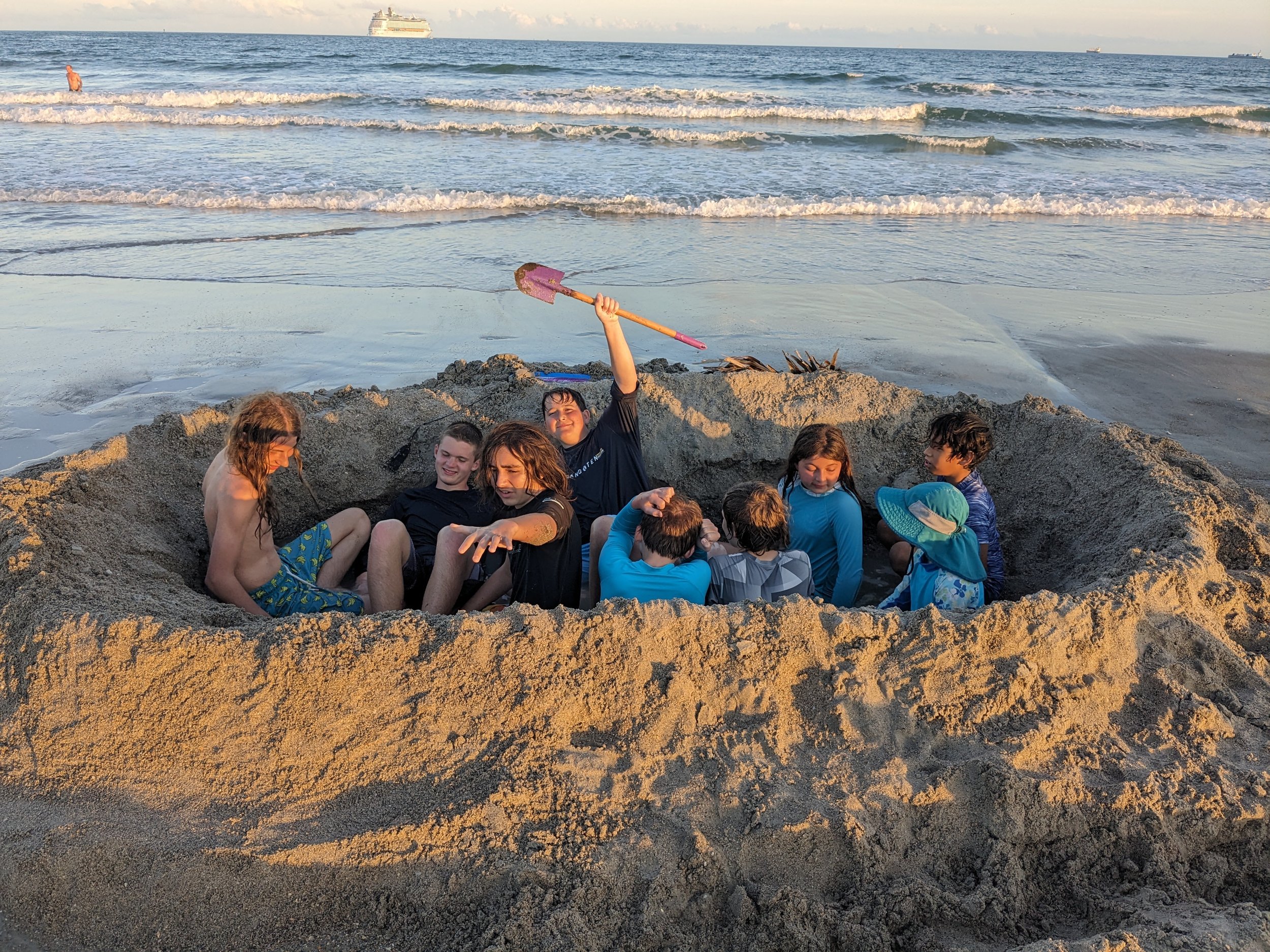
Frequently Asked Questions
FAQ:
What is Ad Astra ALC?
Ad Astra is an Agile Learning Center — a space where homeschoolers engage and learn within a supportive, collaborative community. We focus on curiosity, creativity, and connection. We do not have grades or tests.
Is Ad Astra religious or secular?
We are a secular community welcoming families from all belief systems and backgrounds.
Can I use traditional curriculum or outside classes?
Absolutely. Families are welcome to supplement with online classes, curriculum, or dual enrollment. Learners can work on these during Ad Astra hours, and facilitators are happy to assist when needed.
Is Ad Astra an umbrella school?
No. We are a homeschool enrichment center, not a school. Families remain responsible for registering with the county or enrolling in an umbrella school as required in Florida.
Does Ad Astra provide grades or transcripts?
We do not provide traditional assessments. Instead, we offer mentorship, goal-setting, and support for learners to create digital or physical portfolios. Parents are encouraged to document their child’s journey, and our private Facebook group shares photos and updates that you may use for documentation.
How does Ad Astra support neurodivergent learners?
We welcome neurodiversity and celebrate each learner's strengths. Our self-directed model allows students to work at their own pace, pursue their interests, and design days that fit their needs. We are a wonderful option for neurodiverse learners.
Can I use the FES or PEP scholarship for tuition?
Yes! We are a direct provider for Step Up for Students. If your child qualifies for FES-UA or PEP, you can pay tuition through the EMA portal.
What do learners do all day?
Each day begins and ends with a community meeting. In between, it’s all about following interests: projects, discussions, games, research, outdoor time, hands-on experiments — whatever sparks inspiration!
How do kids learn if nothing is required?
They learn what they need when they need it — just like adults do. When curiosity is the driver, learning is deep, joyful, and lasting. Facilitators offer support and supply resources, but learners lead the way.
Does self-directed learning make kids self-centered?
Actually, the opposite. When kids feel heard and respected, they grow into confident, kind, and collaborative people. Our community thrives on mutual trust, shared responsibilities, and group goals that build empathy and connection.
What about math?
We offer games, puzzles, and logic-based challenges regularly to build math skills naturally. We use math in real-life ways—like measuring for building projects or following recipes while cooking—so it feels useful and fun, not forced.
What about screen time and video games?
We guide learners to use technology intentionally — scheduling screen time, limiting phone use, and encouraging in-person socialization. While screens can be a powerful tool for creativity and learning, we emphasize creating over consuming and support mindful, purposeful use of digital tools.
Why is the minimum age 10?
Around age 10, kids are ready to begin managing their own days, follow personal goals, and collaborate more independently. This maturity allows our community to thrive.
Isn’t it weird to mix ages?
Not at all — it’s wonderful. Mixed-age environments foster leadership, mentoring, and empathy. Teens model maturity, younger learners bring fresh energy, and together they form a strong, respectful community.
How can I learn more about Ad Astra ALC?
Click here to contact us! We look forward to hearing from you.
